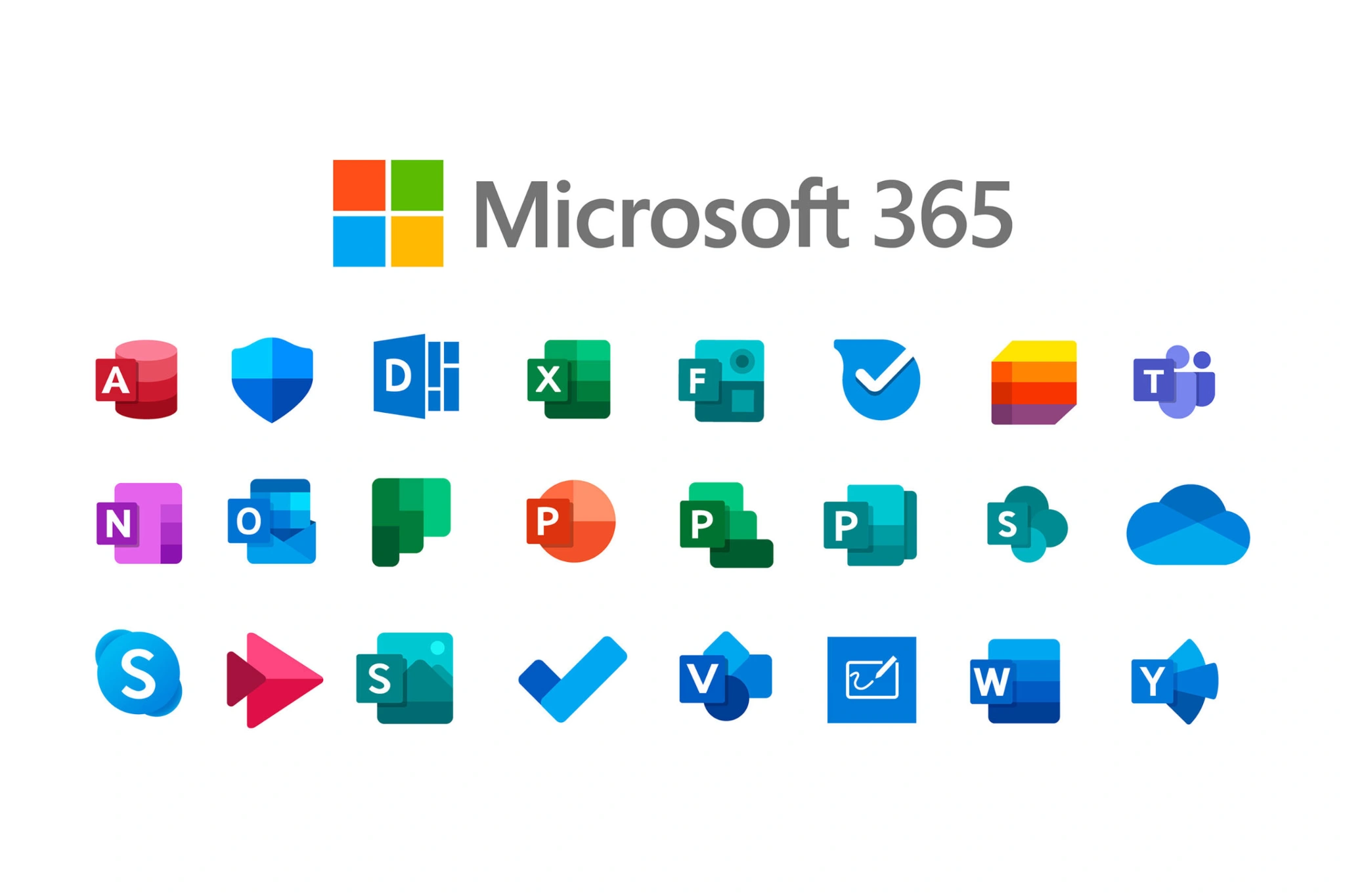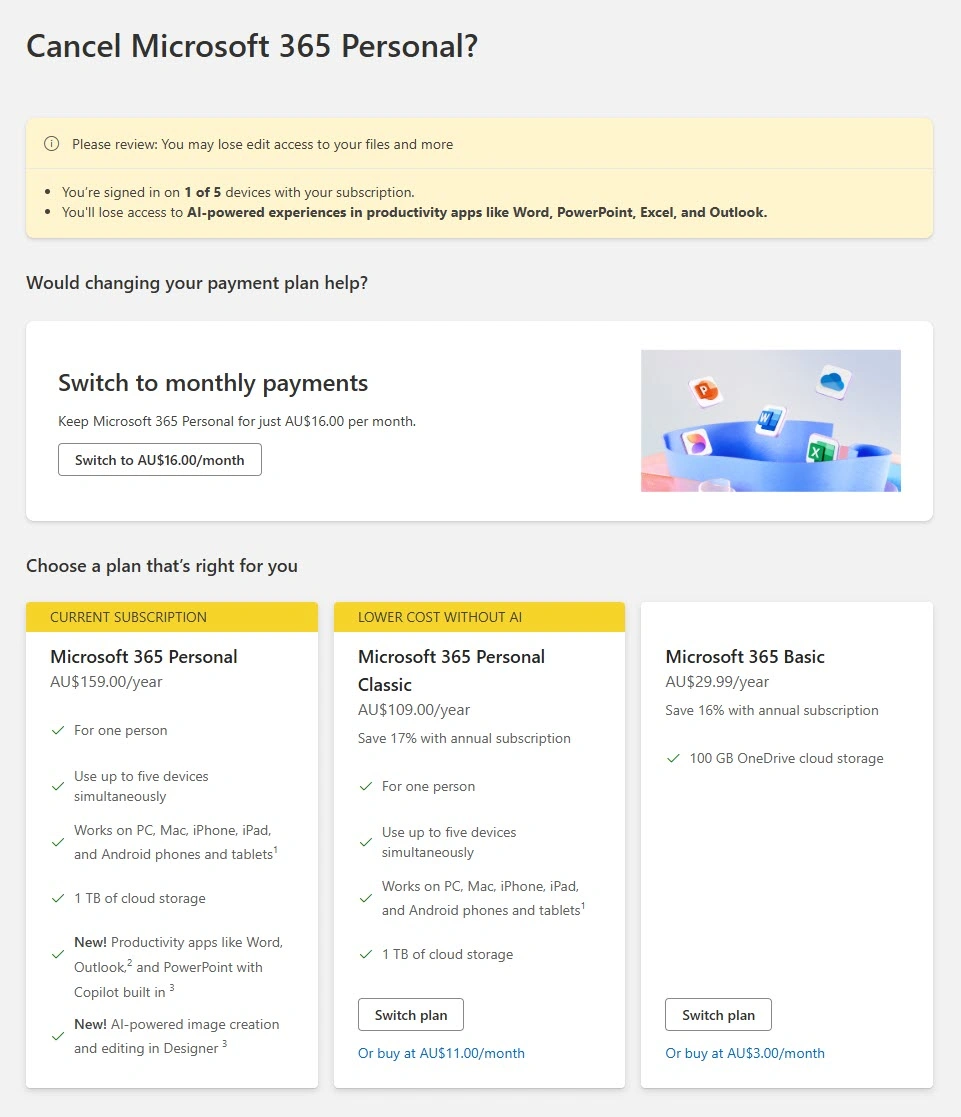Microsoft Faces Court Action in Australia
Microsoft Corporation and its Australian subsidiary now face legal action after the Australian Competition and Consumer Commission (ACCC) filed proceedings in the Federal Court. The commission accuses the tech giant of misleading approximately 2.7 million Australians using Microsoft 365 Personal and Family subscription plans with auto-renewal enabled since October 31, 2024.

Microsoft 365 sued by ACCC for misleading 2.7 million Australians
Subscriptions See Sharp Price Increase
Annual subscription costs for the Microsoft 365 Personal plan increased by 45 percent from $109 to $159. The Family plan rose 29 percent from $139 to $179. Around April 2025, these price hikes began taking effect as users reached their renewal periods.

Official statement by Microsoft regarding price hike
Copilot AI Integration Sparks Dispute
The price surge followed the integration of Microsoft’s AI assistant, Copilot, into Personal and Family plans in late 2024. Copilot became a core feature across subscriptions globally. Consumers received communications stating they had two choices: accept Copilot and pay higher prices or cancel their subscriptions.
Cheaper ‘Classic’ Plans Concealed
The ACCC alleges Microsoft failed to inform subscribers of a third, undisclosed option. Customers could keep their original plan at the old price without Copilot. This choice, known as the ‘Classic’ plan, only became visible during the online cancellation process. The ACCC claims Microsoft deliberately concealed this alternative from consumers to reduce opt-outs from the higher-priced Copilot plans. “We’re concerned that Microsoft’s communications denied its customers the opportunity to make informed decisions about their subscription options, which included the possibility of retaining all the features of their existing plan without Copilot and at the lower price,” said ACCC Chair Gina Cass-Gottlieb.
Consumer Complaints Drive Regulatory Response
Reports surfaced early in 2025 from Australian Microsoft 365 users who discovered the Classic plan only after attempting to cancel their subscription. Many took to online forums detailing their dissatisfaction and how they uncovered the cheaper alternative by initiating the cancellation process. The ACCC picked up the issue after receiving complaints from both individual subscribers and advocacy groups.

A screenshot of the cancellation page revealing the Classic plan
Communications Under Scrutiny
Microsoft sent two emails and published one blog post about Copilot integration and price hikes. The ACCC claims these communications misled consumers by presenting only two options: moving to a more expensive plan or cancelling. The commission argues this structure breached the Australian Consumer Law, which requires service providers to disclose all material information. Microsoft’s approach allegedly created a false impression about available choices, undermining transparency for consumers.
Legal Stakes and Penalties
For corporations, the maximum penalty for each breach of Australian Consumer Law is either $50 million, three times the total benefit obtained by the conduct, or 30 percent of the corporation’s adjusted turnover during the breach period, whichever is greater. The ACCC seeks financial penalties, injunctions, declarations, consumer redress, and costs from Microsoft. The Federal Court will determine the final outcome.
Also Read: Netwealth Breaks Silence with Government Aid Request After Members Lose $101 Million
International Implications and Industry Impact
Microsoft 365 forms a critical part of many Australians’ digital workflows, offering key apps such as Word, Excel, and Teams. There are limited alternatives to the bundled package, so cancelling is not a straightforward decision for many households. The ACCC’s case signals a broader regulatory focus on digital consumer rights and fair subscription practices in online marketplaces. Similar actions may emerge against other global tech providers who adopt manipulative design patterns or obscure consumer choices.
Company Response and Ongoing Case
Microsoft has yet to issue a comprehensive public response to the legal proceedings. The company maintains that Copilot and related features represent substantial enhancements to productivity offerings. However, the ACCC contends that withholding knowledge of the Classic plan led to unnecessary economic harm for millions of Australians. The case remains ongoing, with further developments expected as the Federal Court reviews submissions.
Conclusion
The outcome of this landmark court case may reshape how subscription-based technology companies communicate price changes and product updates to consumers in Australia and abroad. The ACCC’s stand illustrates its increasing commitment to safeguarding digital consumer rights and holding industry leaders to rigorous standards of transparency and fairness.












